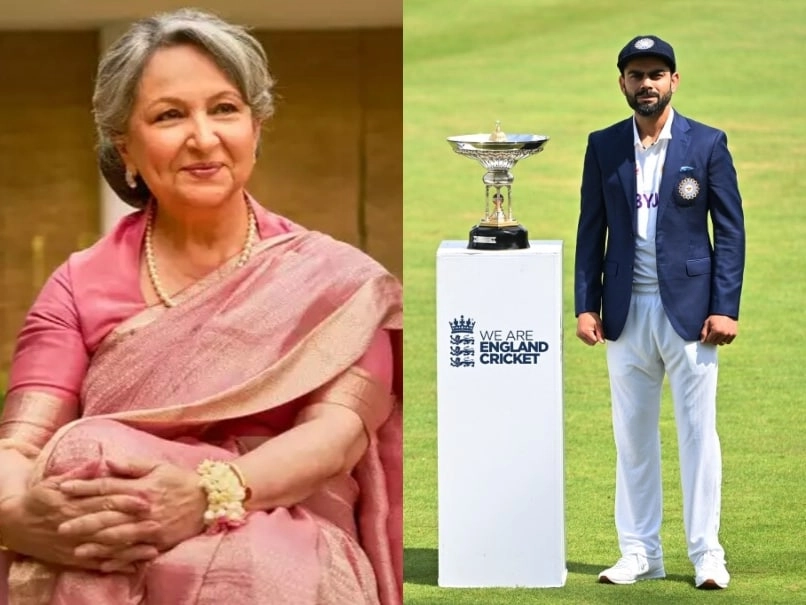In a recent statement regarding the England and Wales Cricket Board’s (ECB) decision to rename the trophy for the Test series between England and India, Indian cricket legend Sharmila Thakur expressed her strong feelings about the significance of cricketing legacies. Specifically, she addressed the Board of Control for Cricket in India (BCCI) and its apparent reluctance to embrace the historical contributions of players like Mansoor Ali Khan Pataudi, affectionately known as ‘Tiger.’ Pataudi, who served as captain of the Indian cricket team in the 1960s and 70s, was a pivotal figure in elevating Indian cricket on the global stage. His legacy is one that not only embodies the spirit of the game but also showcases the evolution of Indian cricketing prowess.
Sharmila’s comments reflect a broader concern regarding the preservation of cricketing history and the recognition of its heroes. She argues that the BCCI’s current stance may inadvertently undermine the rich tapestry of cricket’s past, particularly the contributions of those who laid the groundwork for future generations. The ECB’s decision to name the trophy after Pataudi has sparked a debate about the importance of honoring such legacies, and Sharmila is calling on the BCCI to take an active role in celebrating and preserving the memories of cricketing legends. In her view, the acknowledgment of players like Pataudi is essential for inspiring young cricketers and fostering a deeper appreciation for the sport’s heritage.
Moreover, Sharmila emphasizes that ignoring the legacies of past players may lead to a disconnection between the current generation of cricketers and the historical context of the game. She believes that understanding the sacrifices and achievements of former players can motivate today’s athletes to strive for excellence. By embracing the legacy of figures like Tiger Pataudi, the BCCI would not only honor their contributions but also encourage a sense of pride and identity within the Indian cricketing community. As cricket continues to evolve with the times, it is vital for governing bodies to recognize and celebrate the foundations upon which the sport stands.
In conclusion, Sharmila Thakur’s remarks serve as a poignant reminder of the importance of cricketing legacies. The BCCI has an opportunity to champion the memories of its past greats and ensure that the stories of their struggles and triumphs are not lost to time. By doing so, they can foster a deeper connection between the current players and the sport’s rich history, ultimately enriching the game for future generations. The legacy of Tiger Pataudi and others should be a source of inspiration rather than a forgotten chapter, and it is imperative for cricketing authorities to embrace and celebrate the contributions of those who have shaped the game.




